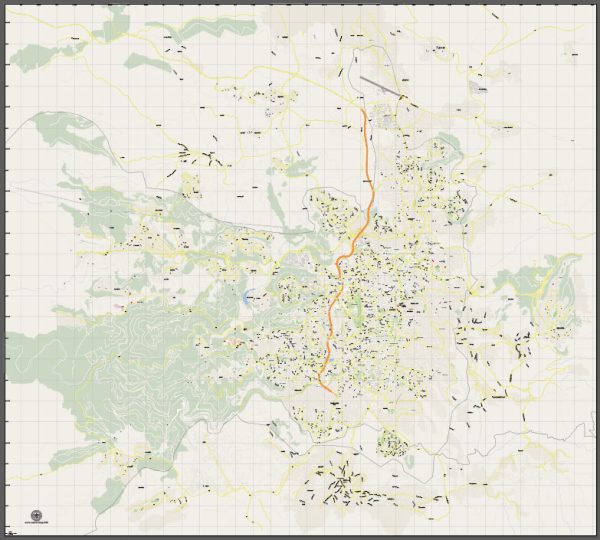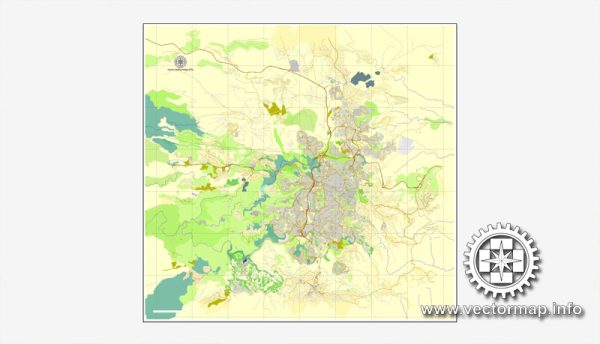Jerusalem is one of the oldest and most historically significant cities in the world, with a rich cultural, religious, and political heritage. It holds deep religious significance for Judaism, Christianity, and Islam, making it a focal point for pilgrims and tourists from around the globe. Here is a detailed description of the city:
- Geography:
- Location: Jerusalem is situated in the Middle East, on a plateau in the Judean Mountains between the Mediterranean Sea and the Dead Sea.
- Topography: The city is characterized by hilly terrain, with valleys and ravines, giving it a unique and picturesque landscape.
- History:
- Ancient History: Jerusalem’s history dates back thousands of years, with evidence of habitation as far back as the 4th millennium BCE. It has been conquered, destroyed, and rebuilt numerous times by various civilizations, including the Canaanites, Israelites, Babylonians, Persians, Greeks, Romans, and Byzantines.
- Religious Significance: Jerusalem is considered holy in three major world religions. For Jews, it is the site of the ancient Temple and the Western Wall. Christians regard it as the place where Jesus was crucified and resurrected, while Muslims believe it is the location of the Dome of the Rock and Al-Aqsa Mosque, crucial in Islamic history.
- Religious Sites:
- Western Wall: Also known as the Wailing Wall, it is a sacred Jewish site, believed to be the last remnant of the Second Temple.
- Church of the Holy Sepulchre: A significant Christian pilgrimage site, housing the purported sites of the crucifixion and the tomb of Jesus.
- Dome of the Rock: An iconic Islamic shrine, it sits on the Temple Mount and is recognized for its distinctive golden dome.
- Cultural Heritage:
- Old City: Surrounded by ancient walls, the Old City is a UNESCO World Heritage Site, containing various religious and historical landmarks.
- Museums: Jerusalem boasts several museums, including the Israel Museum, housing the Dead Sea Scrolls, and the Yad Vashem Holocaust Memorial.
- Modern Jerusalem:
- Diversity: Jerusalem is home to a diverse population, including Jewish, Muslim, and Christian communities, contributing to a unique blend of cultures.
- Governmental Institutions: The city houses government offices, including the Knesset (Israeli Parliament) and the official residence of the President of Israel.
- Economy: Jerusalem’s economy is driven by government services, tourism, and a growing high-tech sector.
- Challenges:
- Political Tensions: The city’s status is a contentious issue in the Israeli-Palestinian conflict, with both Israelis and Palestinians claiming it as their capital.
- Urban Planning: Balancing the preservation of historical sites with modern urban development poses challenges for the city.
In summary, Jerusalem is a city of immense historical, religious, and cultural significance, attracting visitors from different backgrounds who seek to explore its rich tapestry of traditions and landmarks.
Vectormap.Net provide you with the most accurate and up-to-date vector maps in Adobe Illustrator, PDF and other formats, designed for editing and printing. Please read the vector map descriptions carefully.



 Author: Kirill Shrayber, Ph.D. FRGS
Author: Kirill Shrayber, Ph.D. FRGS